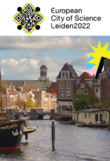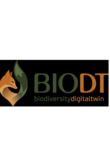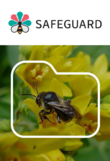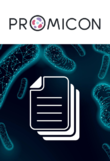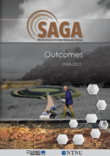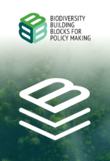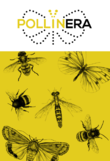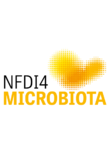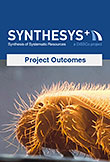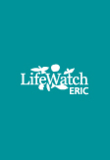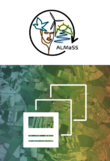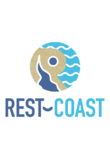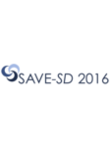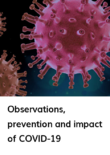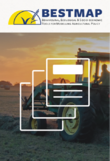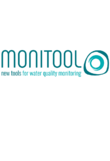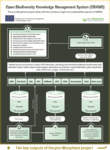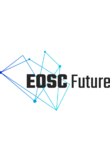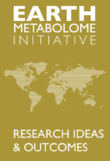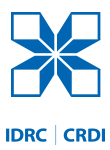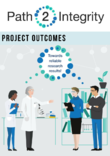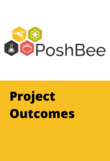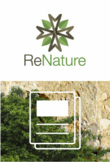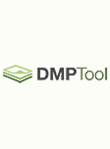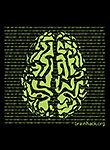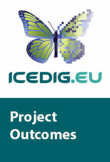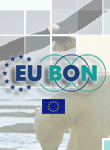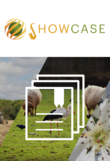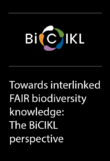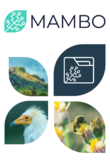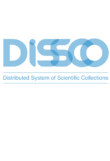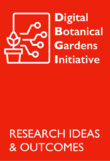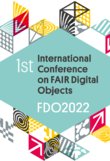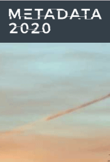Topical collection editors
Topical collection information
Select this topical collection at the end of the submission process.
Topical collection editors
Topical collection information
Select this topical collection at the end of the submission process.
Topical collection editors
Topical collection information
This collection hosts outcomes from Safeguard, a Horizon 2020 funded European Research Consortium (grant agreement No 101003476). Safeguard is a 4-year funded project (2021-2025) that brings together world-leading researchers, NGOs, industry and policy experts to substantially contribute to Europe’s capacity to reverse the losses of wild pollinators. Safeguard will significantly expand current assessments of the status and trends of European wild pollinators including bees, butterflies, flies and other pollinating insects. The collection includes a range of outputs, including reports, protocols, methodologies, and research papers.
Select this topical collection at the end of the submission process.
Topical collection "Harnessing the power of nature through PROductive MIcrobial CONsortia in biotechnology - measure, model, master"
Topical collection editors
Topical collection information
Select this topical collection at the end of the submission process.
Topical collection editors
Topical collection information
This collection hosts outcomes from the ‘Soil Science & Archaeo-Geophysics Alliance’ (SAGA), an international research network funded by the European Cooperation in Science & Technology (COST) for four years (from 26th October 2018 until 25th October 2022) as COST Action SAGA (CA17131). SAGA is developing, promoting and facilitating scientific activities bringing together geophysics and soil science with the overall goal of maximising interpretation of geophysical data for archaeological investigations. The collection includes SAGA’s proposal and annual reports on scientific activities (workshops, training schools, short-term scientific missions and Conference Grants) carried out by its members and external participants.
Select this topical collection at the end of the submission process.
Topical collection editors
Topical collection information
This collection hosts the outcomes from the Horizon Europe project B-Cubed, grant agreement No 101059592 (2023-2026), which aims to transform biodiversity monitoring from a disconnected, labour-intensive activity into an agile and responsive process, tailored to the needs of decision-makers.
To do that, B-Cubed works closely with existing biodiversity initiatives to identify and address policy needs. It leverages the concept of data cubes to standardise access to biodiversity data using the Essential Biodiversity Variables framework. These cubes are the basis for models and indicators of past, current and future biodiversity. The models will be accessible to users in real-time and on-demand in a cloud computing environment, delivering information on biodiversity status and change. To ensure its results can be reused, the project creates exemplar automated workflows for modelling using biodiversity data cubes and for the calculation of change indicators. The effectiveness of B-Cubed’s solutions is demonstrated in four case studies, varying in geographic extent, biodiversity richness and data availability.
This collection will evolve alongside B-Cubed, providing access to the project’s results and serving as a valuable resource for researchers, policymakers, and practitioners.
Select this topical collection at the end of the submission process.
Topical collection "PollinERA – Understanding pesticide-Pollinator interactions to support EU Environmental Risk Assessment and policy"
Topical collection editors
Topical collection information
This collection hosts the outcomes from the Horizon Europe project PollinERA, grant agreement No. 101135005 (2024-2027), which aims to reverse pollinator population declines and reduce the harmful impacts of pesticides through developing a new systems based environmental risk assessment scheme, tools, and protocols. It includes a broad range of toxicological testing, feeding to in silico models (QSARS, toxicokinetic/toxicodynamic, and ALMaSS agent-based population simulations). Using a strong stakeholder co-development approach, these models will be combined in a One System framework, taking a systems view on risk assessment and policy evaluation, including an international monitoring program developed within the project. The One System framework builds on the recent EFSA Roadmap for action on the environmental risk assessment of chemicals for insect pollinators (IPol‐ERA) project. It expands the environmental risk assessment tools currently used for honey bees to include wild bees, butterflies, moths and hoverflies.
As the PollinERA project progresses, the RIO Collection will continue to expand, serving as a repository for researchers, policymakers, and practitioners and offering a diverse array of reports, protocols, methodologies, and research papers.
Select this topical collection at the end of the submission process.
Topical collection editors
Topical collection information
Select this topical collection at the end of the submission process.
Topical collection editors
Topical collection information
European natural history collections play a critical role in mapping a sustainable future for ourselves and the natural systems on which we depend. Since 2004 the EC funded SYNTHESYS programme has been supporting this community, underpinning new ways to access and exploit natural science collections, harmonising collections policy and funding collections-based research for more than 4000 scientists.
SYNTHESYS+ is the fourth iteration of this programme, running from February 2019 to January 2023. This growing collection of articles highlights major outputs from SYNTHESYS+ over the four year of activity, covering topics such as our new digitisation on-demand service, the construction of a European Loans and Visits System (ELViS) and a new data processing platform (the Specimen Data Refinery), applying artificial intelligence to speed up the digital mobilisation of natural history collections.
Select this topical collection at the end of the submission process.
Topical collection editors
Topical collection information
LifeWatch ERIC has embarked on its new destination towards upgrading and (co-)constructing its Infrastructure as a response to the needs of its target communities and stakeholders. Through an industrialization process, all independent data, software components, publications and other types of research products contributed by the Member Countries will be consolidated and integrated to enable collaborative development. The Technology Readiness Level of LifeWatch ERIC will be soaring to TRL9. This process is described in its new Strategic Working Plan on its second implementation period (2022-2026). Accordingly, this topical collection of papers includes articles which describe the main outcomes, that is the deliverables of this new Strategic Working Plan. The deliverables published in this topical collection are of not confidential nature and are developed in the form of a standard, structured template.
Select this topical collection at the end of the submission process.
Topical collection editors
Topical collection information
Select this topical collection at the end of the submission process.
Topical collection "Knowledge and Tools for the Trans-European Nature Network: Designing a Resilient and Connected System of Protected Areas in Europe"
Topical collection editors
Topical collection information
The European Union's 2030 Biodiversity Strategy aims to place species and ecosystems on the recovery path by 2030, preserving and restoring Europe's natural capital, and positioning Europe at the forefront of global biodiversity conservation efforts. These commitments urgently respond to the decline of species and the deterioration of nature. A key component of this Strategy is the development of a Trans-European Nature Network (TEN-N) that protects ecosystems and their contributions to people against threats from climate change and unsustainable land use. The TEN-N is expected to increase the resilience of natural ecosystems, supported by the existing Natura 2000 Network and other nationally designated protected areas. New designations are expected to contribute to achieving protected land, including inland waters, comprising 30% of the territory, increasing the network's ecological representativeness, and incorporating novel strictly protected and ecological connectivity areas. Implementing the TEN-N faces major challenges in defining criteria and planning tools to maximize the network's representativeness and connectivity at the European level.
The TEN-N should create a functionally connected system, assimilating biodiversity conservation goals with nature-based solutions for societal needs, such as green and blue infrastructure. In the face of global change, the Network should also ensure that species communities can adapt, providing sufficient and connected spaces for nature. Achieving these goals requires innovative planning approaches, integrating models of biodiversity and ecosystem change with conservation prioritization tools and participatory processes. The TEN-N must be based on SMART (specific, measurable, attainable, relevant, and time-bound) conservation and management objectives and monitoring methods.
NaturaConnect aims to support the development of the TEN-N through transdisciplinary research. Participatory processes are central to its activities, involving stakeholder engagement at regional, national, and international levels. Predictive biodiversity and ecosystem service models form the backbone for analyzing protected area representativeness and connectivity, taking into account multiple prioritization criteria and the diverse perspectives and needs of nature conservation. NaturaConnect seeks to develop data, analytical tools, and knowledge to support solutions —namely, the blueprint for TEN-N configurations. It also analyses best practices for governance of area-based conservation measures and potential funding mechanisms to provide the European Commission and Member States with a comprehensive set of planning and implementation support tools.
Only publications directly resulting from the NaturaConnect project are accepted in this collection.
Select this topical collection at the end of the submission process.
Topical collection "Large scale RESToration of COASTal ecosystems through rivers to sea connectivity"
Topical collection editors
Topical collection information
Select this topical collection at the end of the submission process.
Topical collection "Selected papers of the SAVE-SD 2016 workshop on “Semantics, Analytics, Visualisation: Enhancing Scholarly Data”"
Topical collection editors
Topical collection information
SAVE-SD 2016 is an international workshop held during WWW 2016 that wants to bring together publishers, companies and researchers from different fields (including Document and Knowledge Engineering, Semantic Web, Natural Language Processing, Scholarly Communication, Bibliometrics, Human-Computer Interaction, Information Visualisation, Bioinformatics, and Life Sciences) in order to bridge the gap between the theoretical/academic and practical/industrial aspects in regards to scholarly data. This RIO collection include the extended versions of the selected poster, demo and position papers accepted at the workshop.
Select this topical collection at the end of the submission process.
Topical collection editors
Topical collection information
Research Ideas and Outcomes (RIO Journal) invites submissions of research outcomes - especially early and brief results - relevant to the COVID-19 pandemic in light of the unprecedented health emergency and the scale of its worldwide impact on society, industry and economics.
By means of Open Science, we aim to contribute with real-time findings and data to the efforts of scientific teams, experts and other decision-makers across the globe, in order to minimise the damage and eventually bring the end to the current crisis, and even more importantly, prevent similar situations in the future. Published research ideas and brief results are also expected to bring up crucial discussion, thereby facilitating actions and collaborations in the fight against devastating health emergencies.
Especially encouraged are submissions focused on the long-term effects of COVID-19. Considered are publications across disciplines, including medicine, ethics, politics, economics etc. at a local, regional, national or international scale. Accepted publication types include: Research articles, Research Idea, Case Study, Clinical Case Study, Data Paper, Forum Paper, Methods, Questionnaire, R Package, Software Description, Workshop Report, Project Report, Research Poster, Research Presentation, Short Communication, Single-media Publication (e.g. infographics), Data Review.
We also encourage publication of research ‘bundles’, where conventional papers are published along with raw research outputs (e.g. data, case studies, presentations, etc.), to better contextualise the work and facilitate further contribution by other scientists.
Select this topical collection at the end of the submission process.
Topical collection editors
Topical collection information
The BESTMAP RIO Collection will host key outputs relating to the new modelling framework the project is developing. The project’s work focuses on supporting EU policy design and monitoring, by addressing the complexity of decisions made by farmers and the wider impact of agricultural policy on natural, social and cultural assets in rural areas of Europe.
This Collection will continue to be developed further as the BESTMAP project continues to promote a sustainable future for the agriculture sector in Europe.
Select this topical collection at the end of the submission process.
Topical collection "Europa Biodiversity Observation Network: integrating data streams to support policy"
Topical collection editors
Topical collection information
Observations are key to understand the drivers of biodiversity loss, and the impacts on ecosystem services and ultimately on people. Many EU policies and initiatives demand unbiased, integrated and regularly updated biodiversity and ecosystem service data. However, efforts to monitor biodiversity are spatially and temporally fragmented, taxonomically biased, and lack integration in Europe. EuropaBON aims to bridge this gap by designing an EU-wide framework for monitoring biodiversity and ecosystem services. EuropaBON harnesses the power of modelling essential variables to integrate different reporting streams, data sources, and monitoring schemes. These essential variables provide consistent knowledge about multiple dimensions of biodiversity change across space and time. They can then be analyzed and synthesized to support decision-making at different spatial scales, from the sub-national to the European scale, through the production of indicators and scenarios. To develop essential biodiversity and ecosystem variables workflows that are policy relevant, EuropaBON is built around stakeholder engagement and knowledge exchange (WP2). EuropaBON will work with stakeholders to identify user and policy needs for biodiversity monitoring and investigate the feasibility of setting up a center to coordinate monitoring activities across Europe (WP2). Together with stakeholders, EuropaBON will assess current monitoring efforts to identify gaps, data and workflow bottlenecks, and analyse cost-effectiveness of different schemes (WP3). This will be used to co-design improved monitoring schemes using novel technologies to become more representative temporally, spatially and taxonomically, delivering multiple benefits to users and society (WP4). Finally, EuropaBON will demonstrate in a set of showcases how workflows tailored to the Birds Directive, Habitats Directive, Water Framework Directive, Climate and Restoration Policy, and the Bioeconomy Strategy, can be implemented (WP5).
This collection only admits publications that are a direct product of the EuropaBON project.
Select this topical collection at the end of the submission process.
Topical collection editors
Topical collection information
The main driver of the MONITOOL project is to respond to the European Directive demands for the assessment of chemical status of transitional and coastal waters, allowing the use of passive sampling devices (PSDs) in a regulatory context, enhancing the implementation of the WFD.
MONITOOL PROJECT - New tools for monitoring the chemical status in transitional and coastal waters under the WFD - aims to provide a robust database of dissolved and labile metal concentrations in transitional and coastal waters for adapting existing Environmental Quality Standards (EQS; 0.45 µm filtered) suitable EQS-DGT for passive sampling devices in order to evaluate the chemical status of the waters under the WFD.
During MONITOOL project, co-deployments of DGTs and water spot sampling and subsequent DGT and water metal analysis across the Atlantic region will be addressed to determine suitable EQS-DGTs for metals.
Select this topical collection at the end of the submission process.
Topical collection editors
Topical collection information
This collection hosts contents of the PhD project of Viktor Senderov dedicated to the Open Biodiversity Knowledge Management system. It will deal with novel ways for publishing, visualizing and dissemination of biodiversity and biodiversity-related data. This PhD project is part of the BIG4 network.
Select this topical collection at the end of the submission process.
Topical collection "Stacking of ecosystem services: mechanisms and interactions for optimal crop protection, pollination enhancement and productivity"
Topical collection editors
Topical collection information
Select this topical collection at the end of the submission process.
Topical collection "EOSC Future: Design and implementation of community engagement through Science Projects"
Topical collection editors
Topical collection information
The European Union has established the European Science Open Cloud (EOSC), as the “system of systems” Infrastructure where scientists, stakeholders and other types of users can find data, analytical web services, publications, networks and other research resources to carry out their work.
The ESFRI Research Infrastructures form five thematic Science Clusters within the EOSC ecosystem: ENVRI FAIR on the Environment, EOSC Life for the Life and Biomedical Sciences, PANOSC for the Photon and Neutron, SSHOC for the Social Sciences and Humanities and ESCAPE for the Astronomy & Particle Physics. These Clusters are critical to the development of the EOSC integrated environment for the provision of the research resources, whose integration, composition and use by their communities will undoubtedly enhance the emerging EOSC infrastructure. They also provide examples of how shared projects, the Science Projects, can contribute to addressing major societal challenges for Europe and demonstrate how Research Infrastructures can align to support Horizon Europe's missions within EOSC.
This collection of articles highlights the major outputs of these EOSC Future Science Projects: their planning, implementation and the engagement of the relevant scientific community.
Select this topical collection at the end of the submission process.
Topical collection editors
Topical collection information
This collection hosts outcomes from B-GOOD, a Horizon 2020 project funded under the European Union's Horizon 2020 research and innovation programme (grant agreement No 817622). B-GOOD is a 5-year funded project (2018-2023) that integrates the knowledge and experience of researchers, beekeepers and a variety of stakeholders, and focuses on the provision of computationally-assisted decision making for sustainable beekeeping. By using a collaborative and interdisciplinary approach, researchers within B-GOOD use data from within and around beehives to develop and test innovative tools to monitor colony health, as well as develop more efficient management practices. The collection includes a range of outputs, including reports, protocols, methodologies, and research papers.
Select this topical collection at the end of the submission process.
Topical collection editors
Topical collection information
This collection hosts outcomes and products from the COST Action CA20125 ParAqua "Applications for zoosporic parasites in aquatic ecosystems".
The Action is funded by the EU (2021-2024) and aims to organise and coordinate an innovative and dynamic European network connecting academia, industry and water management authorities to advance and apply knowledge and expertise on zoosporic parasites (i.e. aquatic fungi and fungi-like microorganisms) and the relation with their hosts in natural and industrial systems.
Zoosporic parasites cause severe host mortality, the economic impacts of parasitic diseases are notable in microalgae biotech industry, affecting production of food ingredients, biofuels, pharma- and nutraceuticals. But zoosporic parasites also constitute important drivers of natural populations, potentially influencing aquatic food webs and community dynamics, including maintaining and promoting diversity.
Main aim and objective of the Action is to organise and coordinate an innovative and dynamic Network connecting academia, industries and water management authorities to advance and apply knowledge and expertise on zoosporic parasites and the relation with their hosts in natural ecosystems and industrial algal biotech production.
The collection includes a range of different outputs and products, including the Grant Proposal (MoU), the Data Management Plan, the Action dissemination products, reports, protocols, methodologies, and research papers.
Select this topical collection at the end of the submission process.
Topical collection editors
Topical collection information
The mission of the Earth Metabolome Initiative is to reveal and safeguard the life-sustaining chemistry of all known species on Earth, map its patterns and functions, and make this knowledge open.
The largely unexplored metabolic diversity of life on Earth, which orchestrates living systems and supports human health and nutrition, is disappearing rapidly as species go extinct. The Earth Metabolome Initiative aims to launch an unprecedented collaborative global sampling and digitization effort to reveal and preserve this vital natural resource. We will develop resources and technologies to accelerate global metabolome discovery for the benefit of human societies and protection of biodiversity. We will make our findings open, accessible and interoperable within an electronic resource that will connect metabolites with their roles in living systems, functional networks and importance for human societies. This will constitute an Earth Metabolome Knowledge Base for sustainable innovations now and in future. We will thus achieve the following scientific, societal and environmental aims:
1. Advance life sciences by systematically expanding knowledge on global chemodiversity and placing it in the context of biosphere processes and functions.
2. Benefit human society through the development of novel, sustainable solutions in agriculture, medicine and other fields. 3. Protect biodiversity by providing critical information for monitoring, developing novel metrics, and informing predictive tools to prioritize protection and incentivising conservation.
The Digital Botanical Gardens Initiative (https://www.dbgi.org/) has been designed as a pilot for the EMI.
This is the RIO topical collection gathering the research outcomes of the Earth Metabolome Initiative, feel free to propose your ideas and contribute!
Select this topical collection at the end of the submission process.
Topical collection "Exploring the opportunities and challenges of implementing open research strategies within development institutions: A project of the International Development Research Center"
Topical collection editors
Topical collection information
This research project was an Open Data pilot based on case studies with seven IDRC grantees who developed and implemented open data management and sharing plans. The case studies examined the scale of legal, ethical and technical challenges that limited the sharing of data from IDRC projects including issues of:
* Privacy, personally identifiable information and protection of human subject
* Protection of intellectual property generated from projects or potential for financial risks for projects or institutions
* Challenges in the local legal environment, including ownership of data
* Ethical issues in releasing or sharing of indigenous and community knowledge, and the relationship between project participants and investigators particularly in the context of historical expropriation of resources
* Local and global issues of capacity and expertise in the management and sharing of data
The project ran over (15) months, commencing December 2015 and ending in February 2017. The project involved a literature review and series of interviews on funder data sharing policies, the seven case studies including data management plans and implementation, and a final summary report. The results of the project aim to refine guidelines for the implementation of development research funders’ open research data policies and data policies more generally.
Select this topical collection at the end of the submission process.
Topical collection editors
Topical collection information
The Path2Integrity project, financed by the EU Horizon 2020, advocates for emphasising the virtues of Research Integrity and strengthening the relationship between science and society in the rapidly changing research landscape. By designing and implementing rotatory role-playing and role-models, the project will maximise the quality and societal impact of research and foster Research Integrity by educating the next generation. Within the three-year research and innovation programme, dialogical trainings will pave the way towards achieving enhanced and successful educational practices and learning methods targeted at students and young researchers, as well as everyone directly or indirectly involved in research, including educators and senior researchers.
Select this topical collection at the end of the submission process.
Topical collection editors
Topical collection information
Select this topical collection at the end of the submission process.
Topical collection "ReNature: Promoting research excellence in nature-based solutions for innovation, sustainable economic growth and human well-being in Malta"
Topical collection editors
Topical collection information
The ReNature RIO Collection will host key outputs relating to the sustainable use of biodiversity, biodiversity-ecosystem functioning, green infrastructure and ecosystem service assessments across rural-urban gradients, equitable access to the benefits derived from nature in cities and socio-environmental justice, payments for ecosystem services, and designing nature-based solutions. Reports from workshops attended by students, early career researchers and policymakers from all over the world will accumulate further empirical knowledge on the ReNature subjects. This Collection will continue to be developed further as the ReNature project continues to promote open innovation whilst effectively engaging communities in the co-development and exchange of knowledge for nature-based solutions implementation.
Select this topical collection at the end of the submission process.
Topical collection editors
Topical collection information
This collection contains data management plans (DMPs) created with the DMPTool – a free online application that helps researchers build data management plans for specific U.S. funding agencies.
Select this topical collection at the end of the submission process.
Topical collection "Political Psychology"
Topical collection editors
Topical collection information
Select this topical collection at the end of the submission process.
Topical collection "DNAqua-Net"
Topical collection editors
Topical collection information
Select this topical collection at the end of the submission process.
Topical collection editors
Topical collection information
Brainhack 2016 features short reports on neuroscience tools and projects that embody the ethos of open science. This is a series of project reports from 2016 Brainhack events. For more information please see: http://brainhack.org
Select this topical collection at the end of the submission process.
Topical collection editors
Topical collection information
Addressing today’s global environmental challenges requires access to significant quantities of data. This holds especially true for the natural sciences, where one rich data trove remains unearthed: The European scientific collections. These jointly hold more than 1.5 billion objects, representing 80% of the world’s bio- and geo-diversity. With only 10 % of these objects digitised, their information remains vastly underused, thus impeding potential applications of this critical scientific resource.
The EU-funded ICEDIG project – “Innovation and Consolidation for Large Scale Digitisation of Natural Heritage” - aims to support the implementation phase of the new Research Infrastructure DiSSCo (“Distributed System of Scientific Collections”) by designing and addressing the technical, financial, policy and governance aspects necessary to operate such a large distributed initiative for natural sciences collections across Europe. This collection of articles highlights the major outputs of the ICEDIG project over the last three years (January 2018 to March 2020).
Select this topical collection at the end of the submission process.
Topical collection "Building the European Biodiversity Observation Network (EU BON) Project Outcomes"
Topical collection editors
Topical collection information
This collection hosts outputs from the FP7-funded EU project Building the European Biodiversity Observation Network (EU BON). The project proposes an innovative approach in terms of integration of biodiversity information systems from on-ground to remote sensing data, for addressing policy and information needs in a timely and customized way.
Select this topical collection at the end of the submission process.
Topical collection editors
Topical collection information
This Collection will continue to be developed further as the SHOWCASE project continues to deliver new insight and innovative tools facilitating the agricultural sector's transition towards more sustainable farming, and thus help meet wider societal needs.
Select this topical collection at the end of the submission process.
Topical collection editors
Topical collection information
The Horizon 2020 project Biodiversity Community Integrated Knowledge Library (BiCIKL) builds a new European community of key research infrastructures, researchers, citizen scientists and other stakeholders in biodiversity and life sciences. Together, the BiCIKL 14 partners solidify open science practices by providing access to data, tools and services at each stage of and along the entire biodiversity research life cycle (specimens, sequences, taxonomic names, analytics, publications, biodiversity knowledge graph).
BiCIKL has a special emphasis on biodiversity literature and develops new methods and workflows for semantic publishing and integrated access to harvesting, liberating, linking, and re-using of sub-article-level data extracted from the published content.
The main challenge of BiCIKL is to design, develop and implement a FAIR Data Place (FDP), a central tool for search, discovery and management of interlinked FAIR data across different domains. The key final outputs of BiCIKL is the Biodiversity Knowledge Hub (BKH), a one-stop portal, providing access to the BiCIKL services, tools and workflows, beyond the lifetime of the project.
Select this topical collection at the end of the submission process.
Topical collection "Open Science"
Topical collection editors
Topical collection information
Select this topical collection at the end of the submission process.
Topical collection editors
Topical collection information
This collection presents significant findings and outcomes from the Horizon Europe project - MAMBO (Modern Approaches to the Monitoring of Biodiversity). The project addresses the crucial need for comprehensive and unbiased biodiversity data in Europe. By developing cutting-edge monitoring tools and integrating advanced technologies, MAMBO aims to enhance our understanding of species and habitats with limited knowledge.
MAMBO brings together experts in computer science, remote sensing, social sciences, environmental economics, citizen science, species biology, ecology, and conservation biology, fostering collaboration and leveraging existing research infrastructure.
As the MAMBO project progresses, the RIO Collection will continue to expand, providing a valuable resource for researchers, policymakers, and practitioners.
Select this topical collection at the end of the submission process.
Topical collection editors
Topical collection information
Natural science collections are a treasure trove of data that are pivotal in finding solutions from and for nature; from conservation, health, minimising the degradation of natural capital and finding new sources of critical minerals, to addressing the challenges of food security, water scarcity and the impact of natural disasters.
The Distributed System of Scientific Collections (DiSSCo) is a pan-European Research Infrastructure (RI) that aims to digitally unify natural science collections - some 1.5 billion specimens - from 175 museums, botanical gardens, and universities across 23 countries in a distributed infrastructure that makes these collections physically and digitally open and accessible for all forms of research and innovation. DiSSCo’s preparatory phase ran from January 2020 to February 2023. This collection of articles highlights the major outputs of the DiSSCo Prepare project, which address five aspects of implementation readiness: the technical, scientific, data, organisational and financial readiness levels.
Select this topical collection at the end of the submission process.
Topical collection editors
Topical collection information
The Digital Botanical Gardens Initiative (DBGI) ambitions to explore innovative solutions for the collection, management and sharing of digital information acquired on living botanical collections. A particular focus is placed on the large scale characterization of the chemodiversity of living plants collections through mass spectrometric approaches. The acquired data is structured, organized and connected with relevant metadata through semantic web technology. The gathered knowledge can then be exploited to inform ecosystem functioning research and orient biodiversity conservation projects. The DBGI initially aims to take advantage of the readily available living collections of Swiss botanical gardens to establish robust and scalable chemo- and biodiversity digitization workflows. The ultimate goal is to apply these approaches in the field and at the global scale in wild ecosystems. In this sense, the DBGI is a pilot for the larger Earth Metabolome Initiative (EMI) see https://www.earthmetabolome.org/
This topical collection will gather and share the reserach outcomes of the DBGI.
Select this topical collection at the end of the submission process.
Topical collection editors
Topical collection information
Successful management, exchange and interpretation of an ever-growing tsunami of digital information and knowledge will depend on highly automated methods dealing with combined data. This will require artificial intelligence but also robust and informative ways to store and disseminate data and metadata. FAIR Digital Objects (FDOs) promise to provide the needed framework.
FAIR is about making data findable, accessible, interoperable and reusable both for humans and machines. FAIR digital objects have shown key capabilities to simplify and scale the use of data across domains, increase trust in data and ease the handling of high volumes of information. Now widespread consensus and collaboration is needed.
The 1st International Conference of FAIR Digital Objects brings together for the first time, key technical, scientific, industry, and science-policy stakeholders at this scale with the aim to boost the development and implementation of FDOs worldwide.
This conference collection explores two of the most urgent themes in constructing the FDO framework: research in structuring the knowledge domain and how to facilitate practical work, and practice in the design and building of FDO-consistent infrastructures.
Select this topical collection at the end of the submission process.
Topical collection editors
Topical collection information
Select this topical collection at the end of the submission process.
